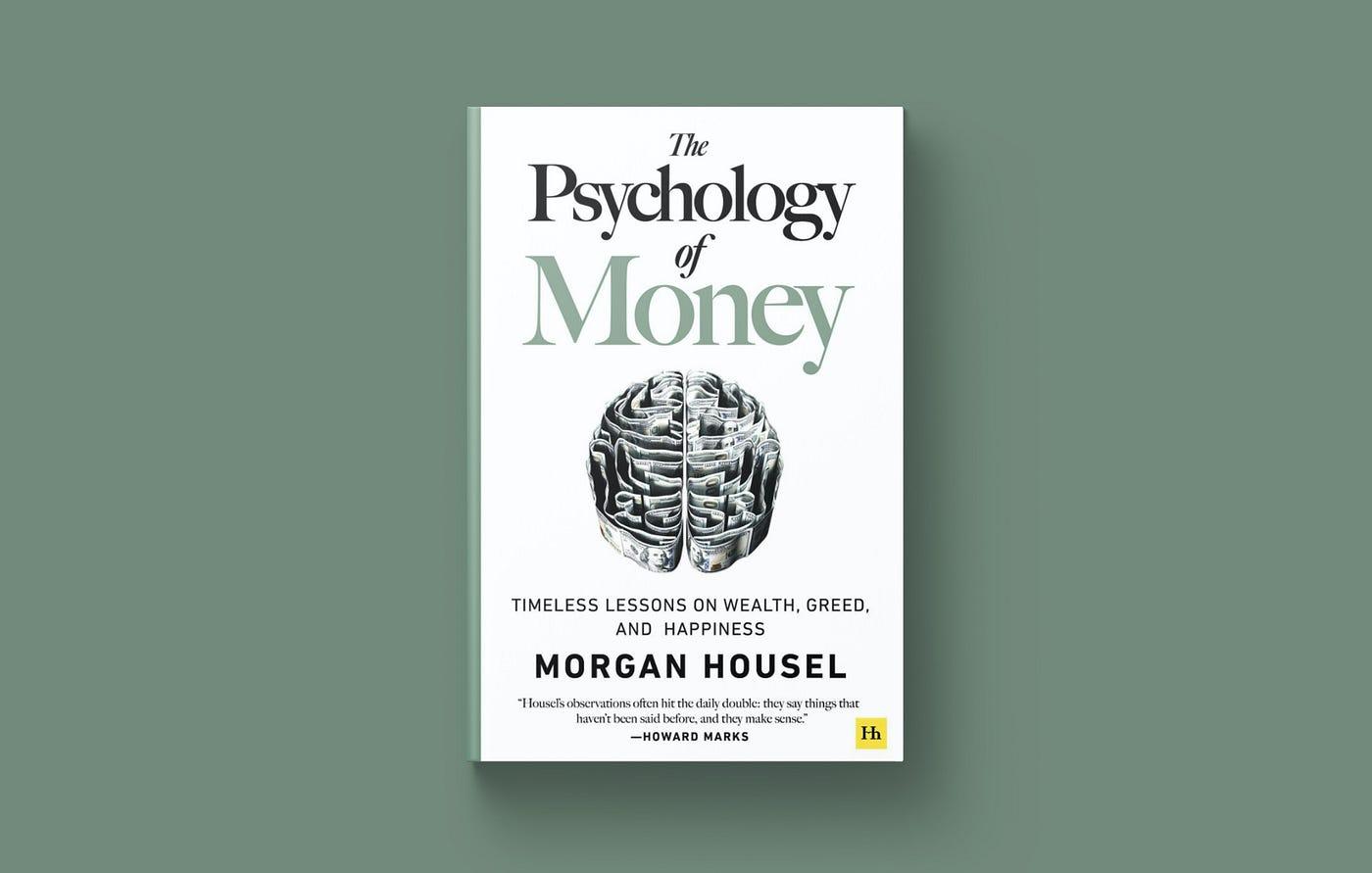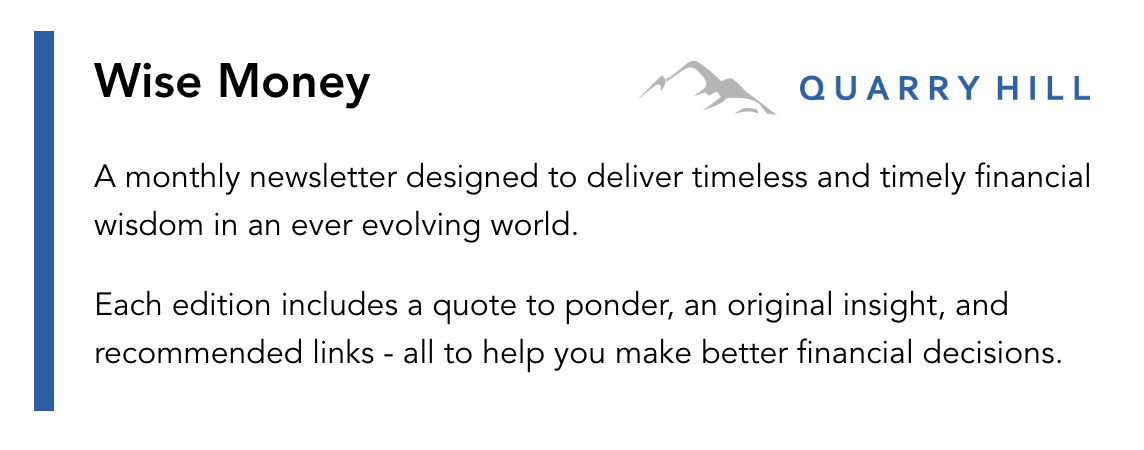

Quote to Ponder
"Money’s greatest intrinsic value - and this can’t be overstated - is its ability to give you control over your time."
― Morgan Housel
Recommended Links
- Investing for Money vs. Investing for Happiness - Millenial Money with Katie
- The Ultimate Bubble
- The Power of Compounding: Canadian Blogger Trades from Paperclip to a House
- American's Are More Afraid of Running out of Money than Death - Marketwatch
- Student Borrowers Must Now Pay - Wall Street Journal
Insight
Money is not just a matter of numbers; it's deeply intertwined with human behavior and psychology. In his enlightening book, "Psychology of Money," Morgan Housel explores the complex relationship between our minds and our financial decisions. Below is a summary of the important concepts from the book, offering valuable insights into mastering the psychology of money.
Money is Relative, Not Absolute: Money is not a fixed, objective measure. Money's value is subjective and influenced by personal experiences, circumstances, and comparisons. Understanding that money's significance varies for each individual can help reshape our attitudes and behaviors towards it.
The Power of Compounding: There is power in compounding, both in financial investments and in life choices. Consistent, long-term actions can lead to significant results over time. By harnessing the magic of compounding, individuals can make wise financial decisions that have a lasting impact.
The Role of Luck and Risk: Luck plays a more substantial role than we often acknowledge, and outcomes are not solely a result of individual skill or effort. Understanding the interplay between luck and risk helps cultivate humility, gratitude, and a realistic perspective on financial success or failure.
The Importance of Saving and Frugality: Financial independence is not solely about income levels but prudent spending and consistent savings habits. By adopting a mindset of delayed gratification and making conscious choices, individuals can create a solid foundation for financial security.
Emotions and Behavioral Biases: Housel delves into the influence of emotions and behavioral biases on financial decisions. He explores common pitfalls such as fear, greed, overconfidence, and loss aversion. Recognizing and managing these biases can lead to more rational and informed financial choices, reducing the likelihood of impulsive and regrettable actions.
The Value of Time: The length of time an investment is held can significantly impact returns. Patience and a long-term perspective allow individuals to ride out market fluctuations, benefit from compounding, and make more informed choices based on solid data and analysis.
The Definition of Wealth: Housel challenges traditional notions of wealth, highlighting that true wealth extends beyond monetary measures. It encompasses factors such as health, relationships, personal fulfillment, and the freedom to pursue meaningful experiences. By broadening our understanding of wealth, we can align our financial goals with a more holistic and fulfilling life.
"Psychology of Money" by Morgan Housel provides profound insights into the intersection of psychology and personal finance. By understanding the relative nature of money, harnessing the power of compounding, embracing frugality, managing emotions and biases, valuing time, and redefining wealth, readers can develop a healthier and more sustainable relationship with money. This book serves as a guide to navigate the psychological aspects of finance, enabling individuals to make wiser decisions, achieve financial well-being, and lead more fulfilling lives.
This material is intended for educational purposes only. You should always consult a financial, tax, or legal professional familiar with your unique circumstances before making any financial decisions. Nothing contained in the material constitutes a recommendation for purchase or sale of any security, investment advisory services or tax advice. The information and opinions expressed in the linked articles are from third parties, and while they are deemed reliable, we cannot guarantee their accuracy.
